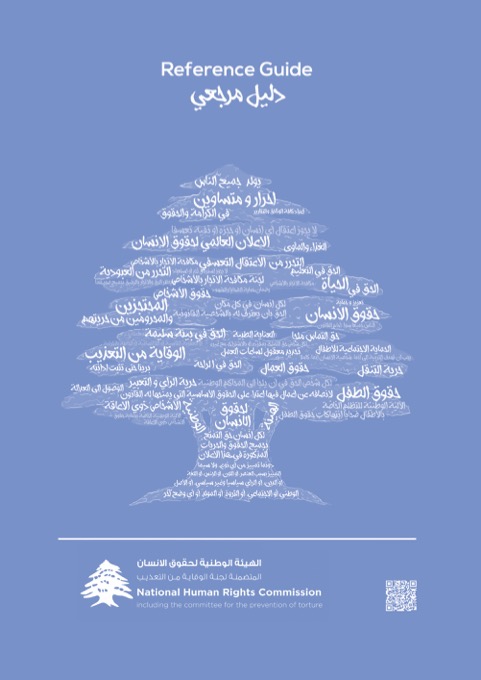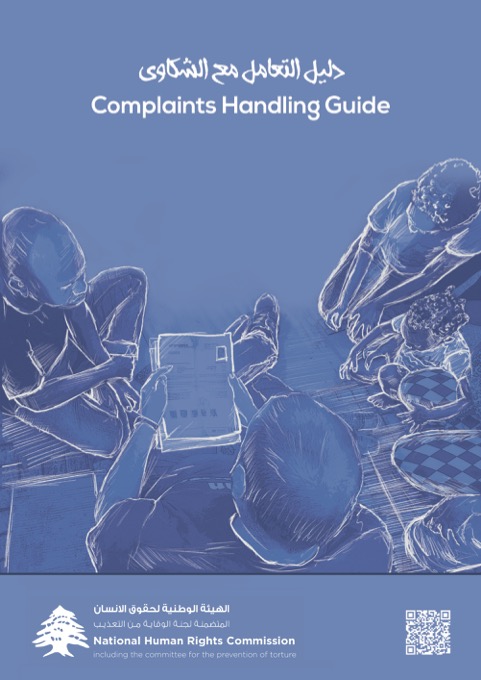The National Human Rights Commission stated that, twenty years after Lebanon became a party to the World Health Organization (WHO) Framework Convention on Tobacco Control (FCTC) in 2005, the majority of measures required by the Convention remain absent from national legislation—despite the passage of Law No. 174 on tobacco control, packaging, and advertising, issued on August 29, 2011.
Commenting on the recent release of the “Investment Case for Tobacco Control in Lebanon”, issued by the Ministry of Public Health, WHO, the FCTC Secretariat, and the United Nations Development Programme (UNDP), the Commission emphasized the study’s significance—particularly the alarming statistics on tobacco’s impact on public health, the national economy, and Lebanon’s increasing mortality rate.
The study reveals that Lebanon could prevent over $400 million in economic losses (equivalent to 15.2 trillion LBP) and save up to 40,000 lives over the next fifteen years by implementing six key tobacco control policies recommended under the WHO FCTC.
It also highlights the high economic and human cost of tobacco consumption in Lebanon, currently estimated at $140 million per year, equivalent to 1.9% of the national GDP. These costs include healthcare expenditures, productivity losses, and significant human development setbacks. Moreover, the economic benefits of enhancing tobacco control in Lebanon far outweigh implementation costs—with projected savings of 15.2 trillion LBP compared to implementation costs of only 177 billion LBP.
Although Law 174 aims to implement various aspects of the FCTC, Lebanon still has the highest smoking prevalence in the Middle East and North Africa, underscoring the urgent need for decisive action—including issuing regulatory decrees and amending the law’s provisions in line with the international treaty.
The Commission held successive Lebanese governments responsible for the persistent failure to issue a decree, based on a joint proposal by the Ministers of Health and Finance, to mandate pictorial health warnings covering 40% of the front and back of tobacco packages. The Commission stressed that over a decade of delay in issuing this decree can only be interpreted as a deliberate evasion of implementing public health protections in favor of commercial and vested interests linked to the tobacco industry.
According to the study—developed in cooperation with the Ministry of Public Health, the WHO team at UNDP, and the WHO itself—implementing FCTC measures could save over 2,600 lives annually and allow Lebanon to reinvest savings from reduced healthcare costs and increased tobacco tax revenues into national development priorities, such as universal health coverage, social protection programs, and economic recovery efforts.
Currently, over 9,000 people in Lebanon die annually from tobacco-related diseases, accounting for more than a quarter of all deaths nationwide. Despite joining the FCTC in 2005, Lebanon must still take further policy action to fully realize the Convention’s benefits.
Recommended policy actions include:
-
Full implementation of the WHO Framework Convention on Tobacco Control.
-
Strengthening and increasing tobacco taxation (Article 6).
-
Enforcing smoke-free public places and workplaces (Article 8).
-
Mandating pictorial health warnings on tobacco packaging (Article 11).
-
Requiring plain packaging of tobacco products (Articles 11 & 13 guidelines).
-
Enhancing public awareness of tobacco harms and cessation benefits (Article 12).
-
Promoting cessation and treating tobacco dependence by training health professionals (Article 14).
-
Strengthening cross-sectoral coordination through a national tobacco control mechanism (Article 5.2(a)).
-
Developing a national tobacco control strategy (Article 5.1).
-
Protecting health policies from commercial and vested interests (Article 5.3).
-
Acceding to the Protocol to Eliminate Illicit Trade in Tobacco Products and building enforcement capacity (Article 15).
-
Linking tobacco control implementation with broader sustainable development strategies.
The WHO FCTC is the first international public health treaty negotiated under the auspices of the WHO, with 183 parties representing 90% of the global population. It provides a comprehensive legal framework and evidence-based measures—including large pictorial health warnings, smoking bans, and tobacco tax increases—that have saved millions of lives worldwide.
هذه المقالة متاحة أيضًا بـ: العربية (Arabic) Français (French)



